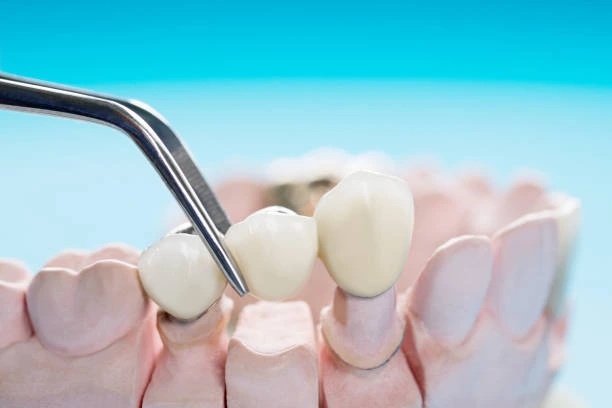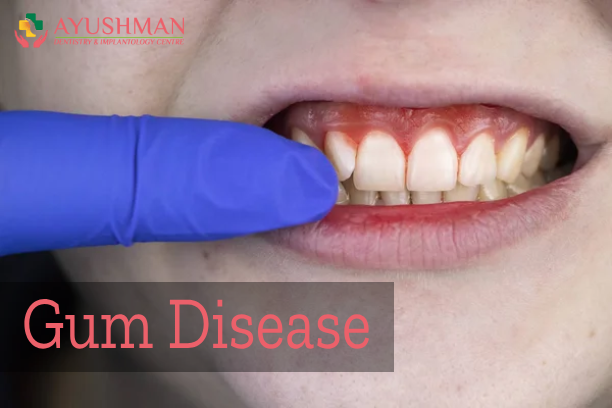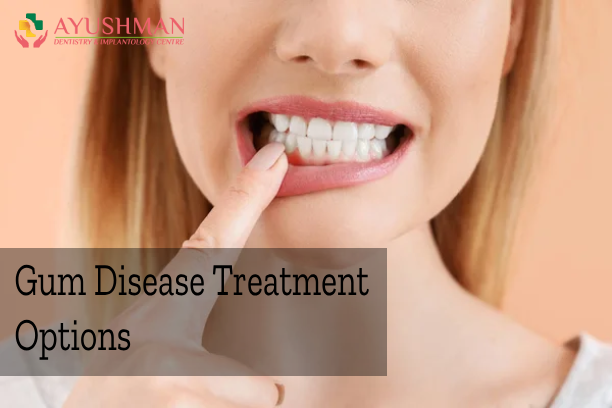Gum disease can severely affect your teeth, gums, and overall quality of life, leading to pain, discomfort, or tooth loss if untreated. This guide covers causes, symptoms, and treatments for effective management. Gum disease arises from the buildup of plaque and bacteria on your teeth and gums. It can vary from mild to severe depending on the extent of the plaque and bacterial infection. Without treatment, it can lead to significant damage to your oral health and may even result in broader health issues. This guide offers details on gum disease causes, symptoms, and treatments, aiming to help you understand and manage it with practical prevention and care steps. What is Gum Disease? Gum disease, or periodontal disease, arises from bacterial inflammation in the gums, damaging both gums and supporting tissues. Untreated, it can lead to tooth loss. Indications include red, swollen, or bleeding gums, receding gums, and bad breath. Risk factors include not enough oral care, smoking, diabetes, and some medications. In the initial phases, professional cleanings along with diligent home care can be sufficient. For more advanced conditions, treatments might involve more intensive cleanings, antibiotics, or even surgical procedures. Early diagnosis and treatment are crucial Frequent Causes of Gum Disease Periodontal issues are commonly caused by plaque and bacteria buildup on teeth, often due to inadequate oral hygiene. When plaque hardens into tartar, it can lead to gingivitis, causing red, swollen, and sensitive gums, and even loose teeth. Continued plaque buildup can progress to periodontitis, making gums recede and form pockets prone to infection, which can eventually cause tooth loss. Often dental cleanings and careful oral hygiene are essential for prevention and management Signs & Symptoms of Gum Disease If you have periodontal disease, you might experience symptoms like bleeding gums, sore and red gums, bad taste, dry mouth, and gradual tooth loss. These issues often result from bacterial buildup and inflammation. In severe cases, it can lead to bone and gum tissue loss, creating pockets too deep for regular cleanings. Consistent dental check-ups and professional cleanings, paired with daily brushing and flossing, are essential for both managing and preventing gum disease. Diagnosing Gum Disease Diagnosing gum disease is required fordetermining the best treatment. Dentists usually begin with detailed imaging of bacteria and gum tissues to spot risks like deep pockets or misaligned teeth. Regular dental visits and a healthy diet help reduce the risk. A weakened immune system can worsen gum disease, leading to tailored treatments. Your dentist may also recommend preventive measures, such as improved diet and consistent oral hygiene, to prevent disease progression. Preventing Gum Disease Proactively preventing gum disease can greatly reduce your risk. Despite factors like genetics, smoking, and poor oral hygiene contributing to the condition, regular dental check-ups and daily brushing and flossing are crucial. These practices help remove plaque and catch gum disease early, avoiding serious issues like heart disease. Be careful of additional risk factors such as diabetes and certain medications. With consistent care and professional treatment, gum disease can be managed and risks minimized. Treatments for Gum Disease Gum disease requires professional treatment as it results from bacterial infection, potentially affecting overall health and causing tooth damage. Treatments include periodontal surgery and tissue regeneration. Regular brushing and flossing are essential for prevention and management. Treatment options differ based on the severity of the disease and may include: Consulting a dentist is crucial for effective treatment and prevention of gum disease, especially with risk factors like smoking and diabetes. Routine dental visits and diligent oral care are key to keeping your gums in optimal condition. Risks of Untreated Gum Disease If gum disease is left untreated, it can significantly harm your oral health. As it progresses, deep periodontal pockets form between your gums and teeth, leading to tissue and bone loss. Deep pockets harbor bacteria, complicating cleaning efforts and elevating health risks. Factors like smoking, poor diet, and genetics can worsen the condition. Regular brushing, flossing, and dental visits are essential for early detection and prevention, effectively managing and preventing gum disease. Key Takeaways Bacteria can become entrenched in deep pockets, making it harder to clean and raising potential health hazards. If ignored, it can lead to tooth loss, discomfort, and infections. To prevent gum disease, it’s crucial to maintain good oral hygiene, visit your dentist regularly, and eat a balanced diet. Early detection is key; with prompt treatment, gum disease can be managed and its progression halted. Taking preventive steps is much more effective than dealing with advanced problems later. Identifying the initial symptoms of gum disease early can prevent long-term damage. For those seeking reliable care to safeguard their oral health and prevent gum disease, Ayushman Dentistry & Implantology Centre in Dwarka, Delhi, is an excellent choice. They offer a variety of dental services, spanning from regular check-ups and cleanings to specialized treatments for advanced gum disease. Contact Ayushamn Dental today to schedule your appointment and take the first step towards a healthier smile.







